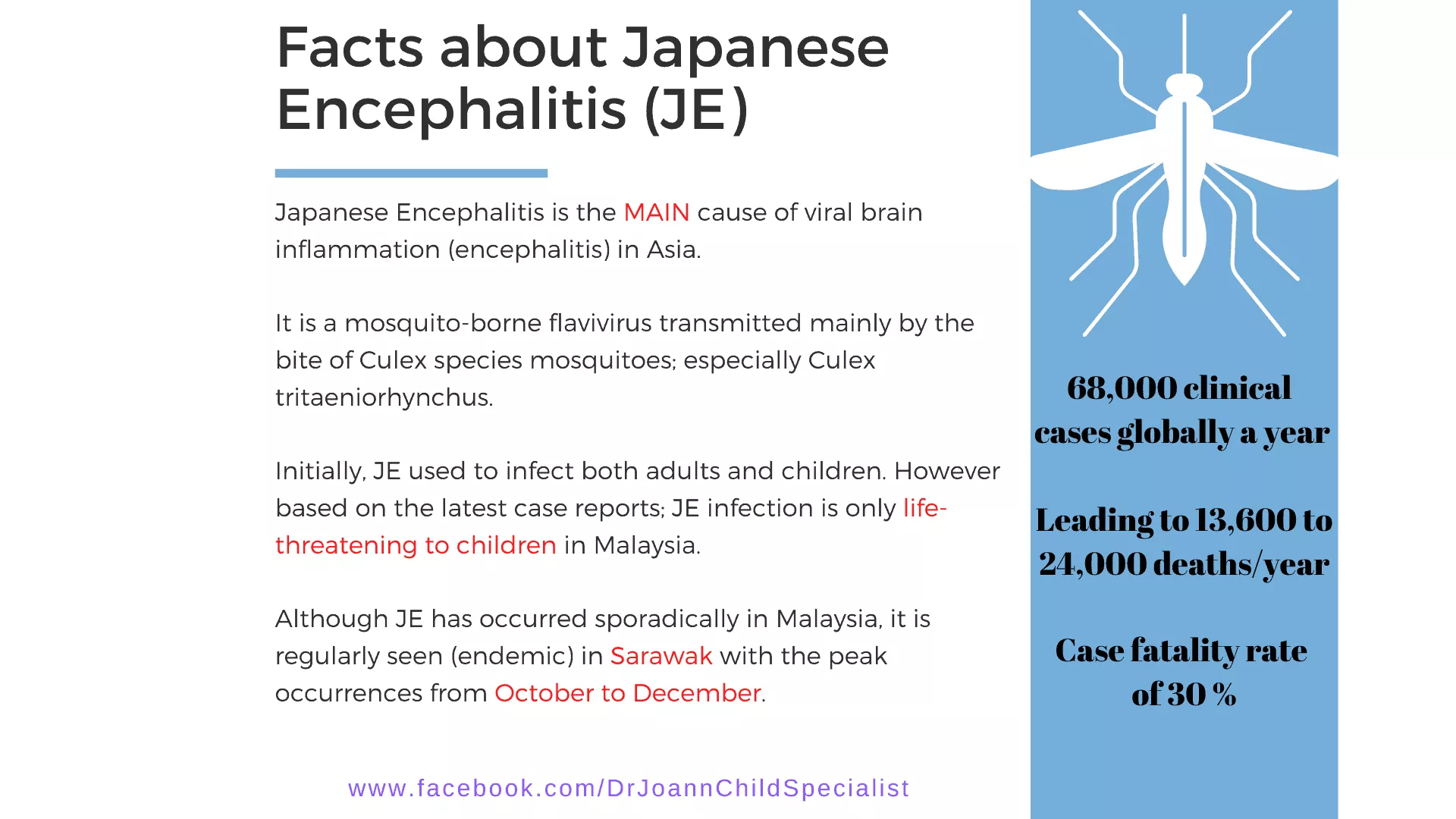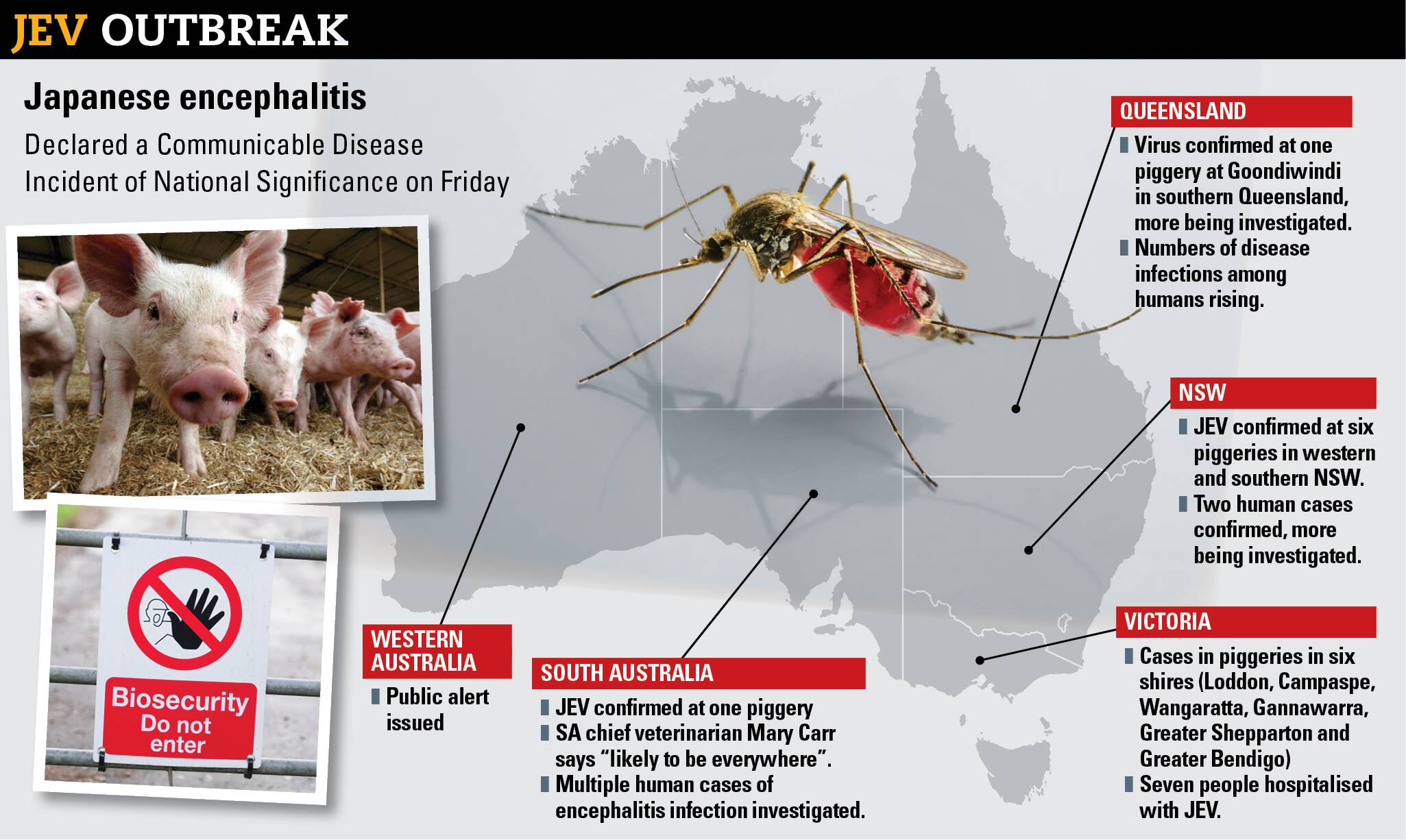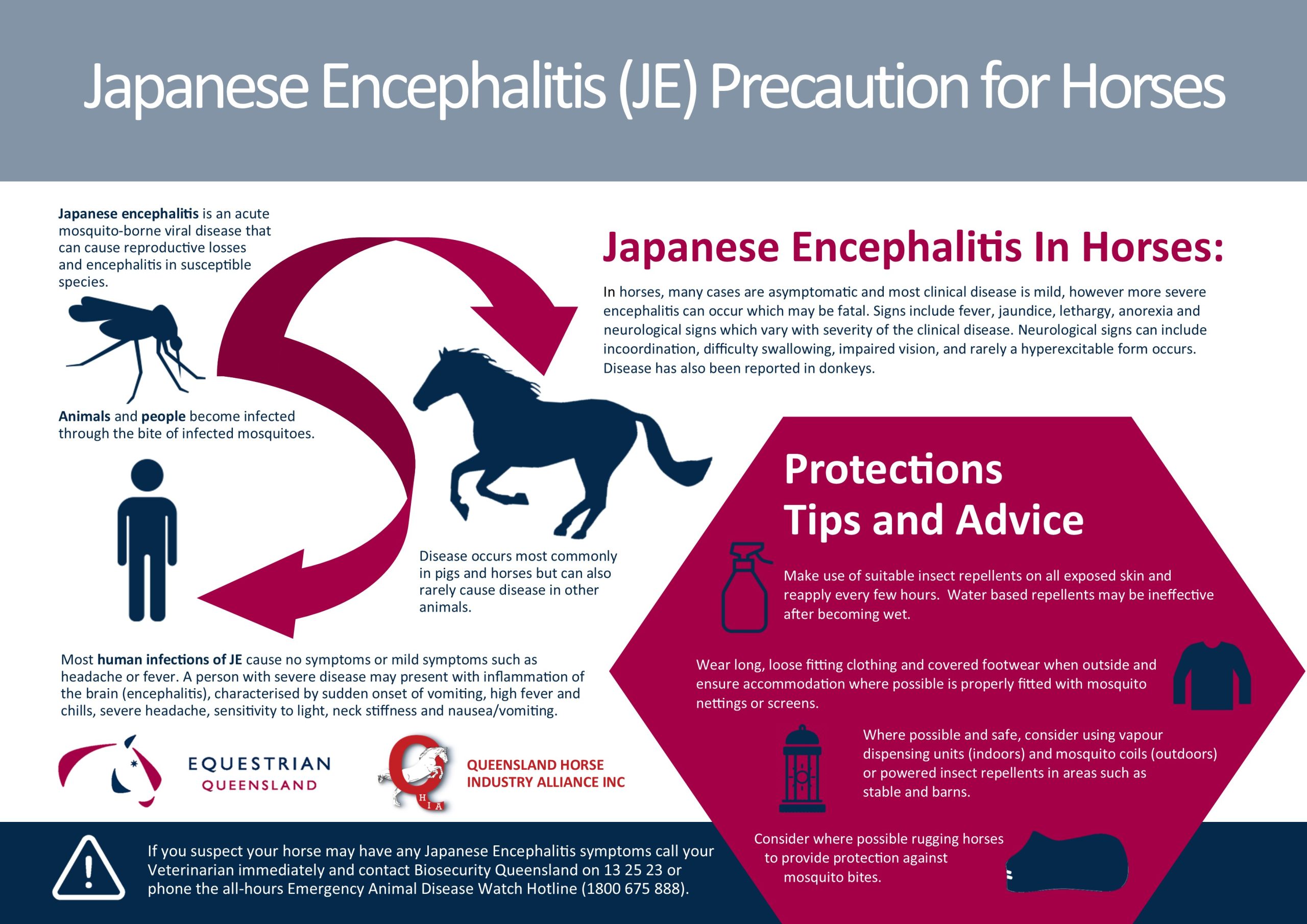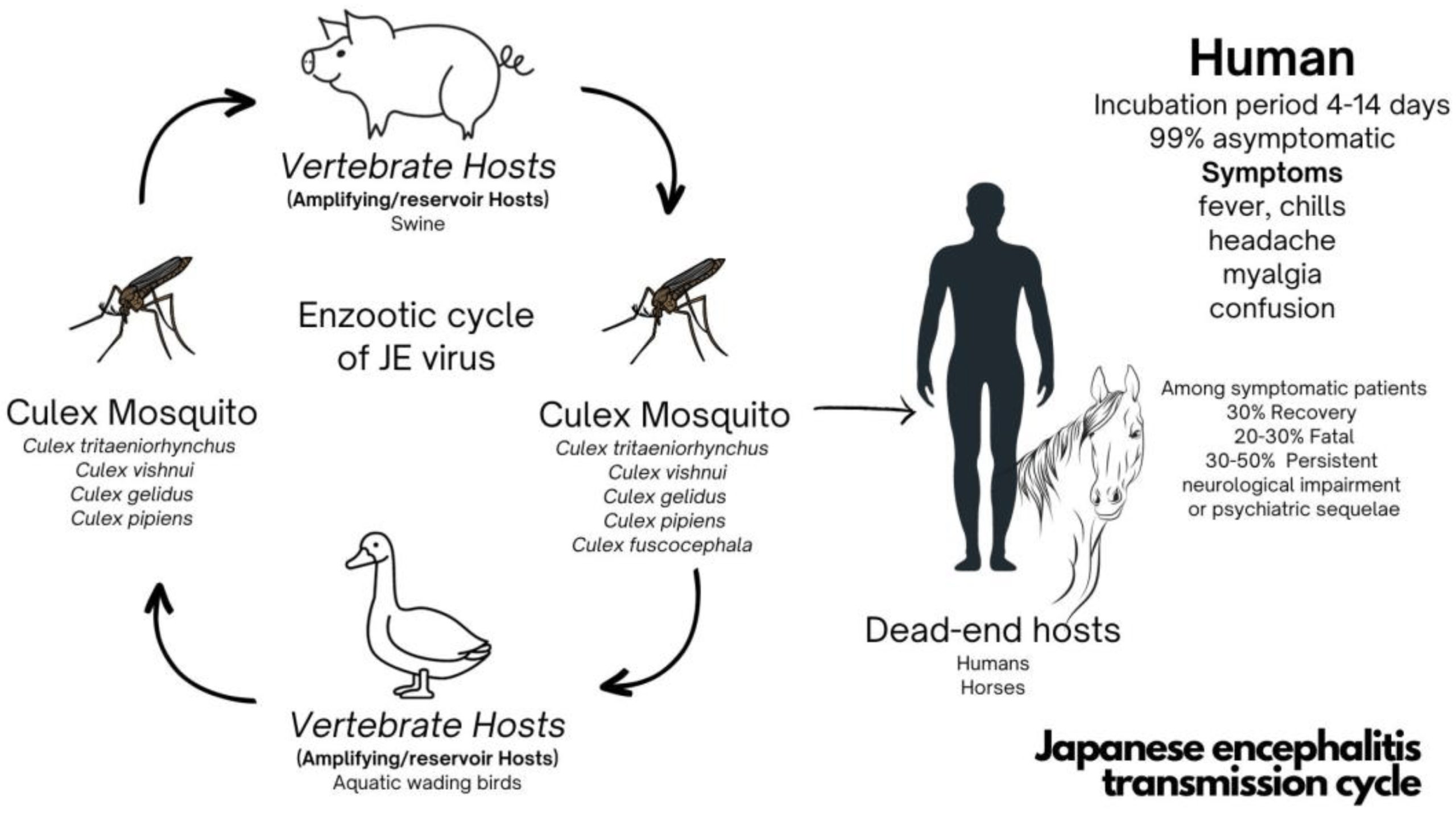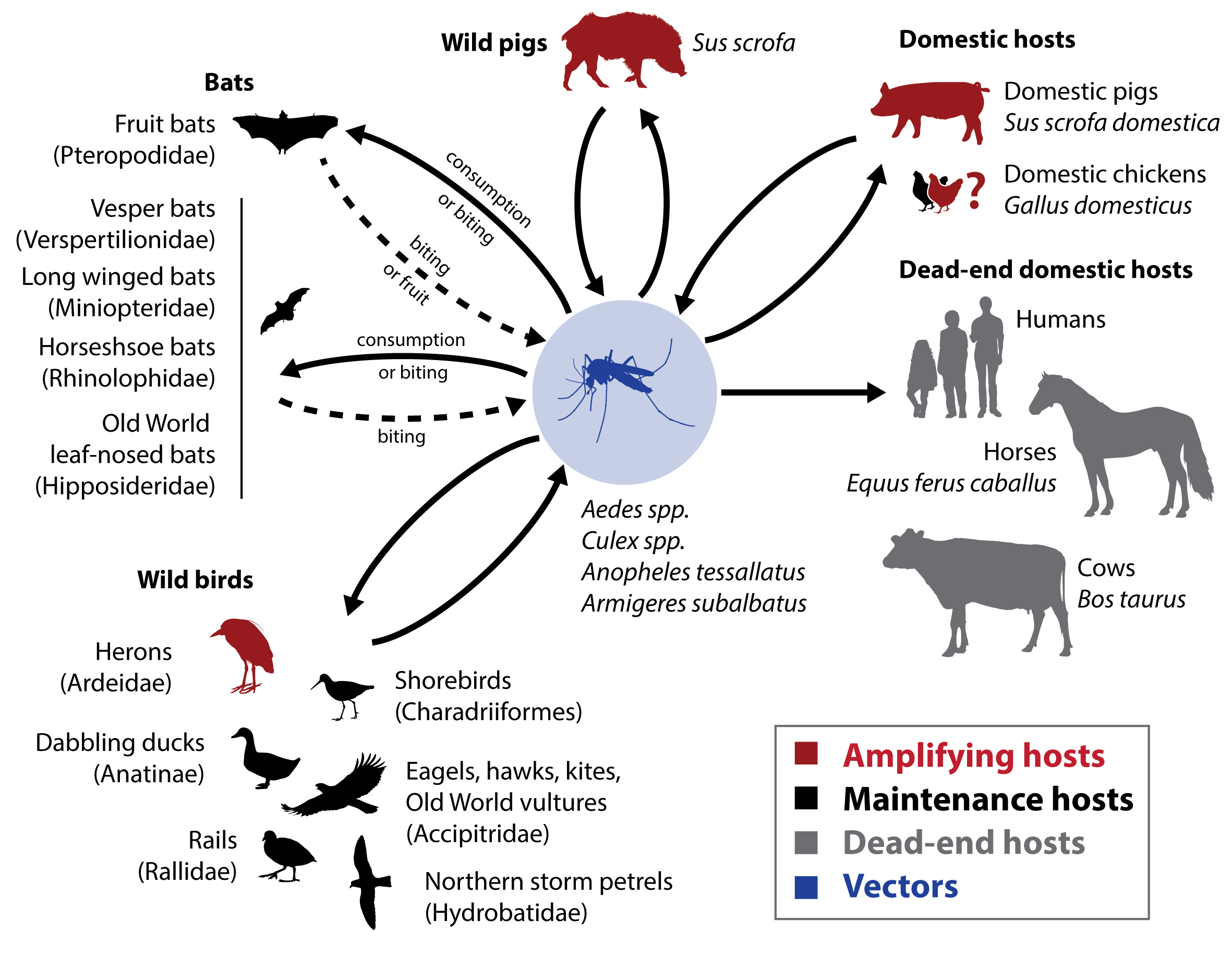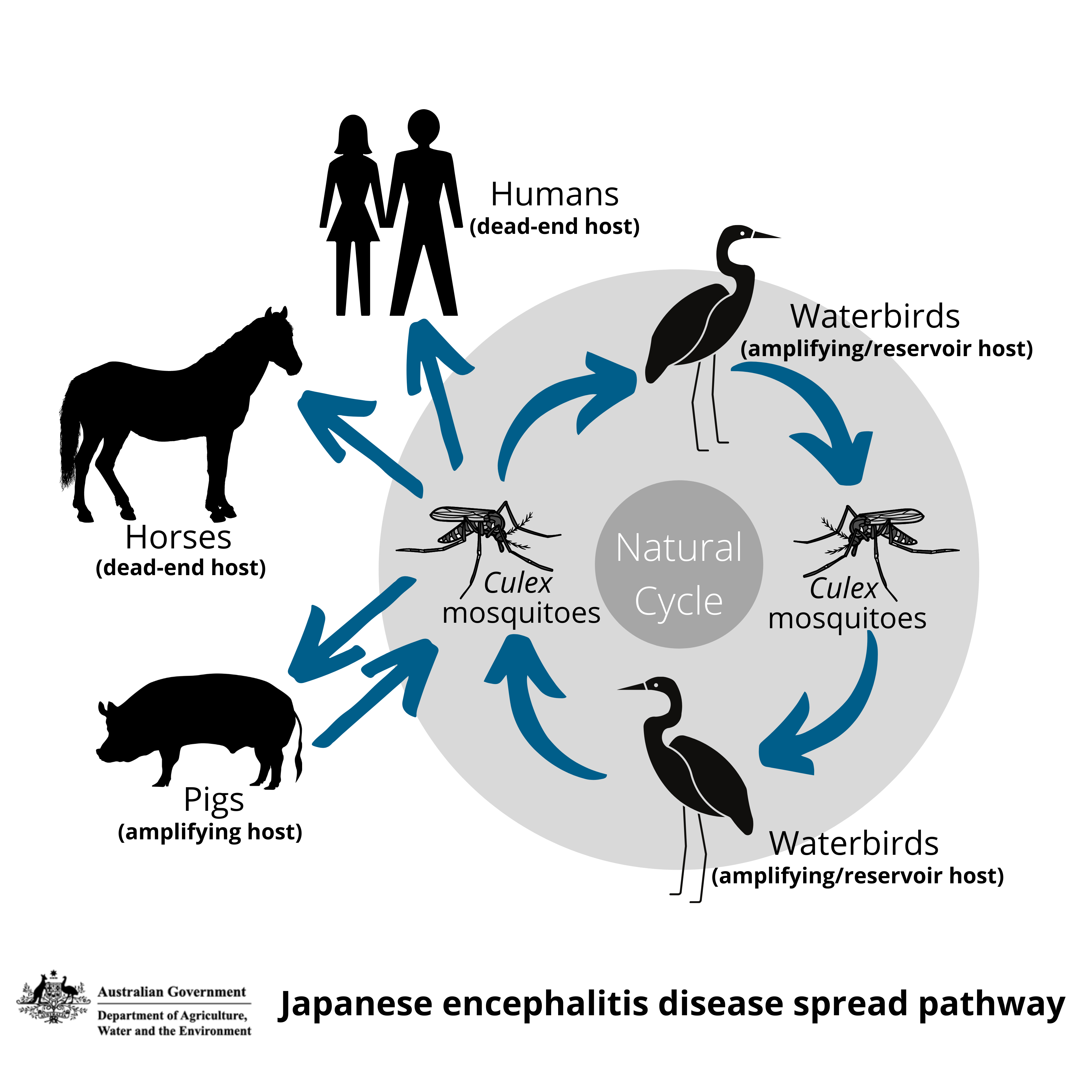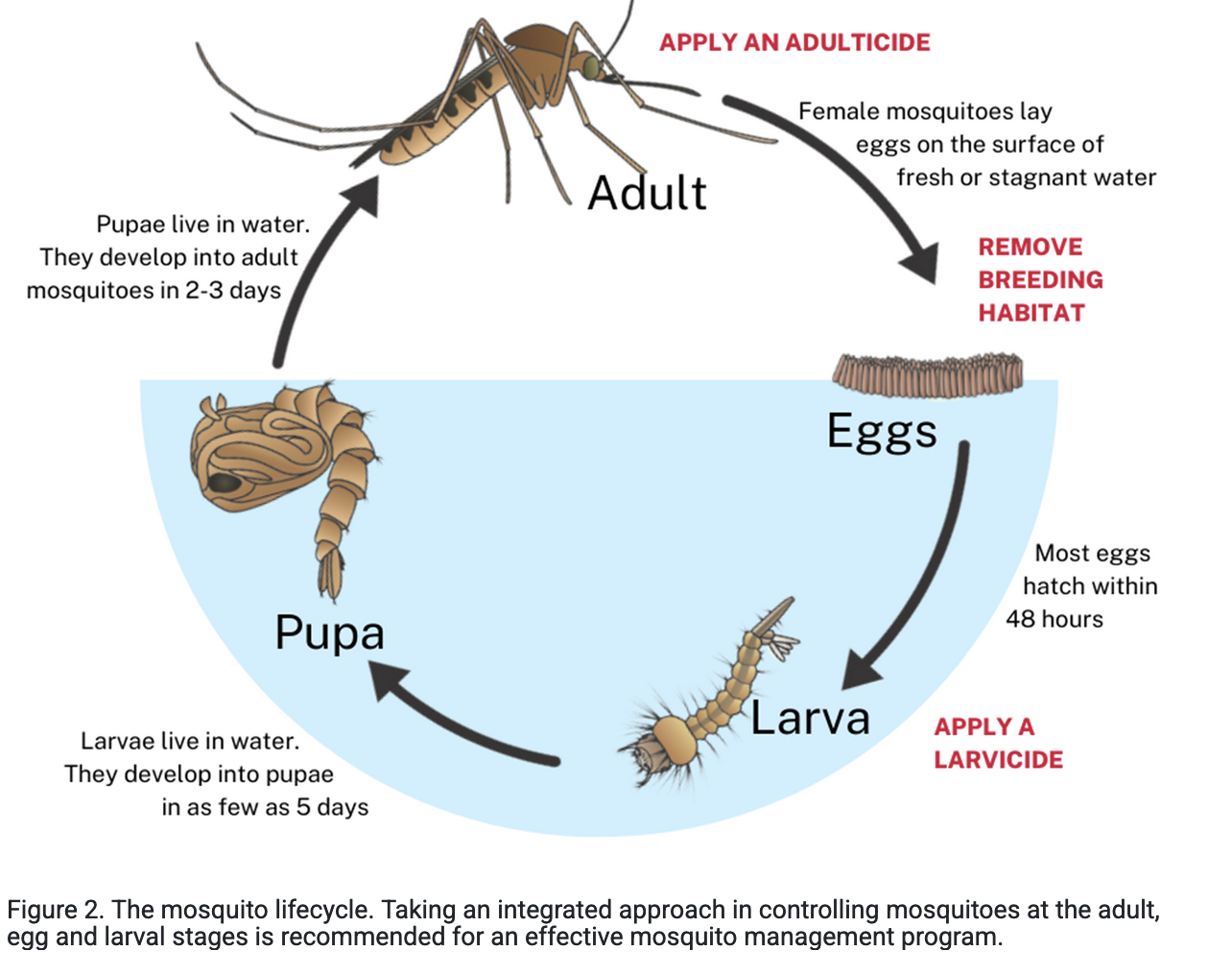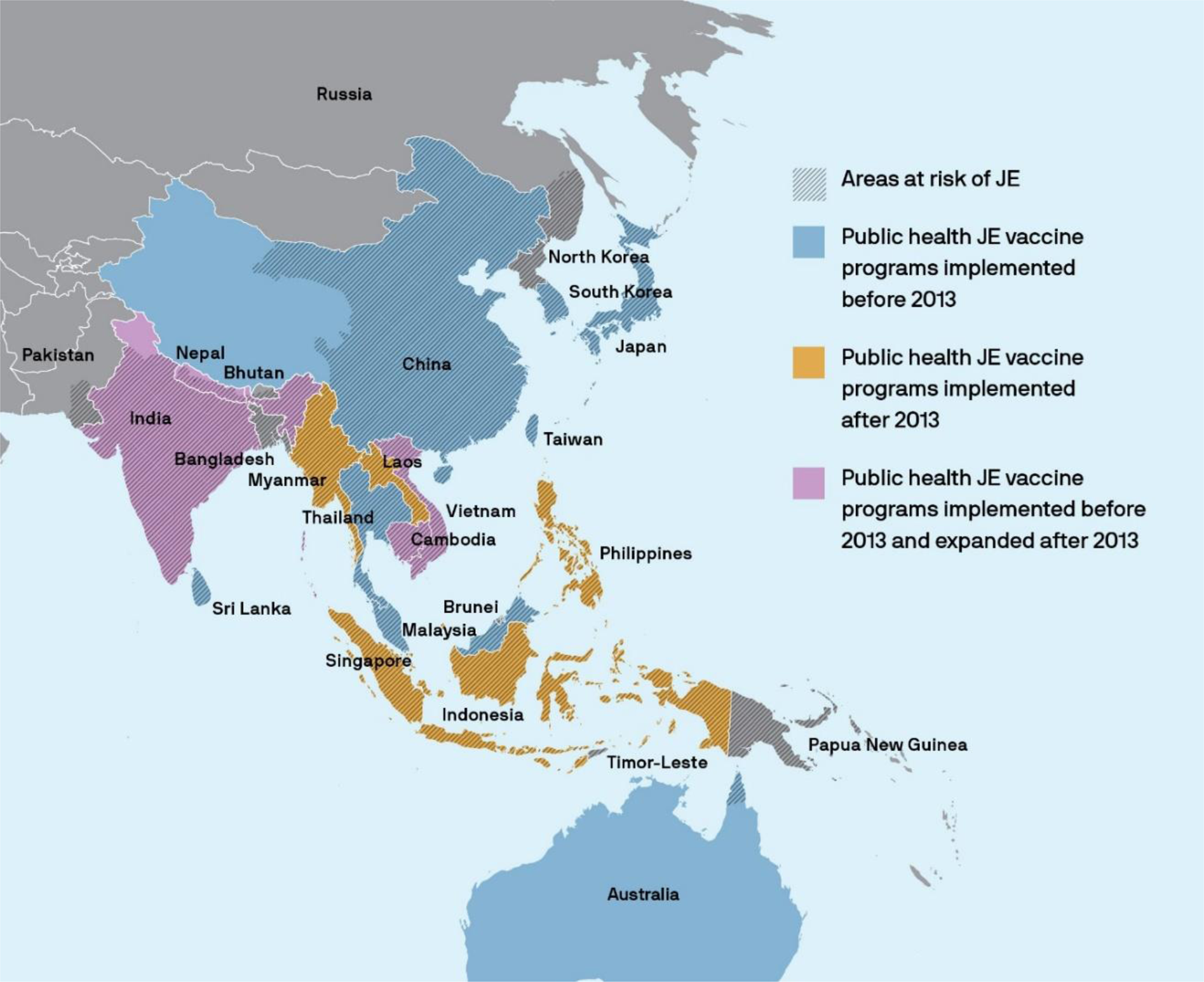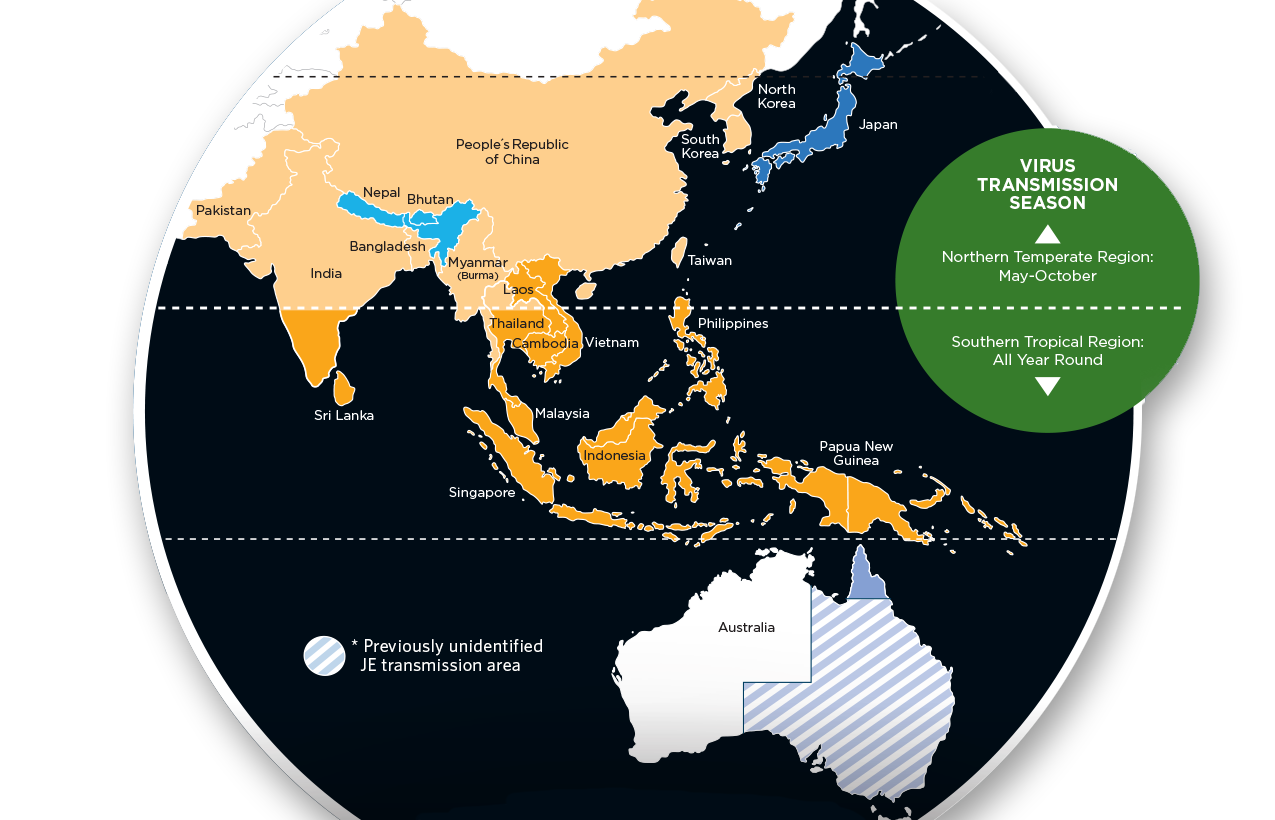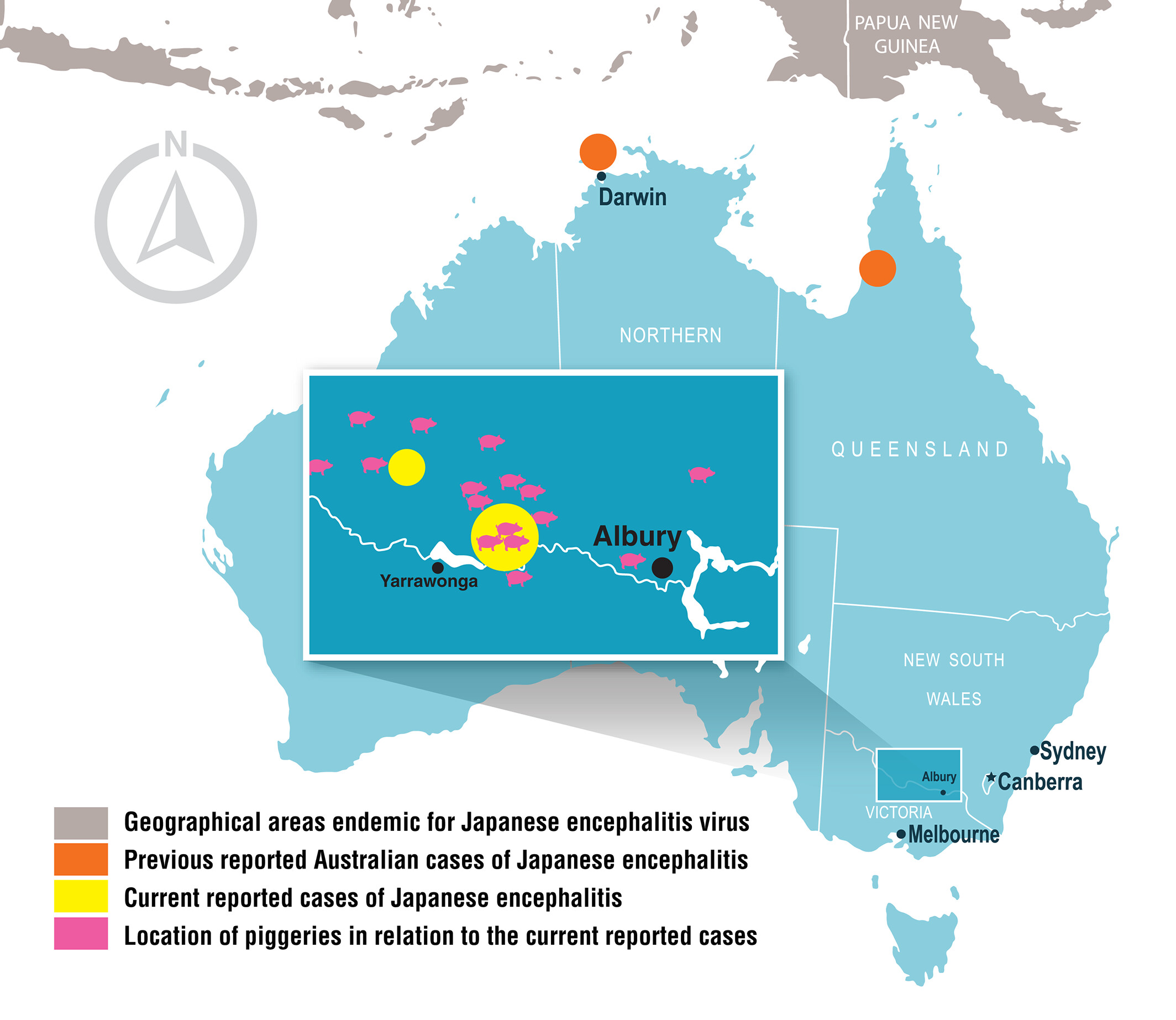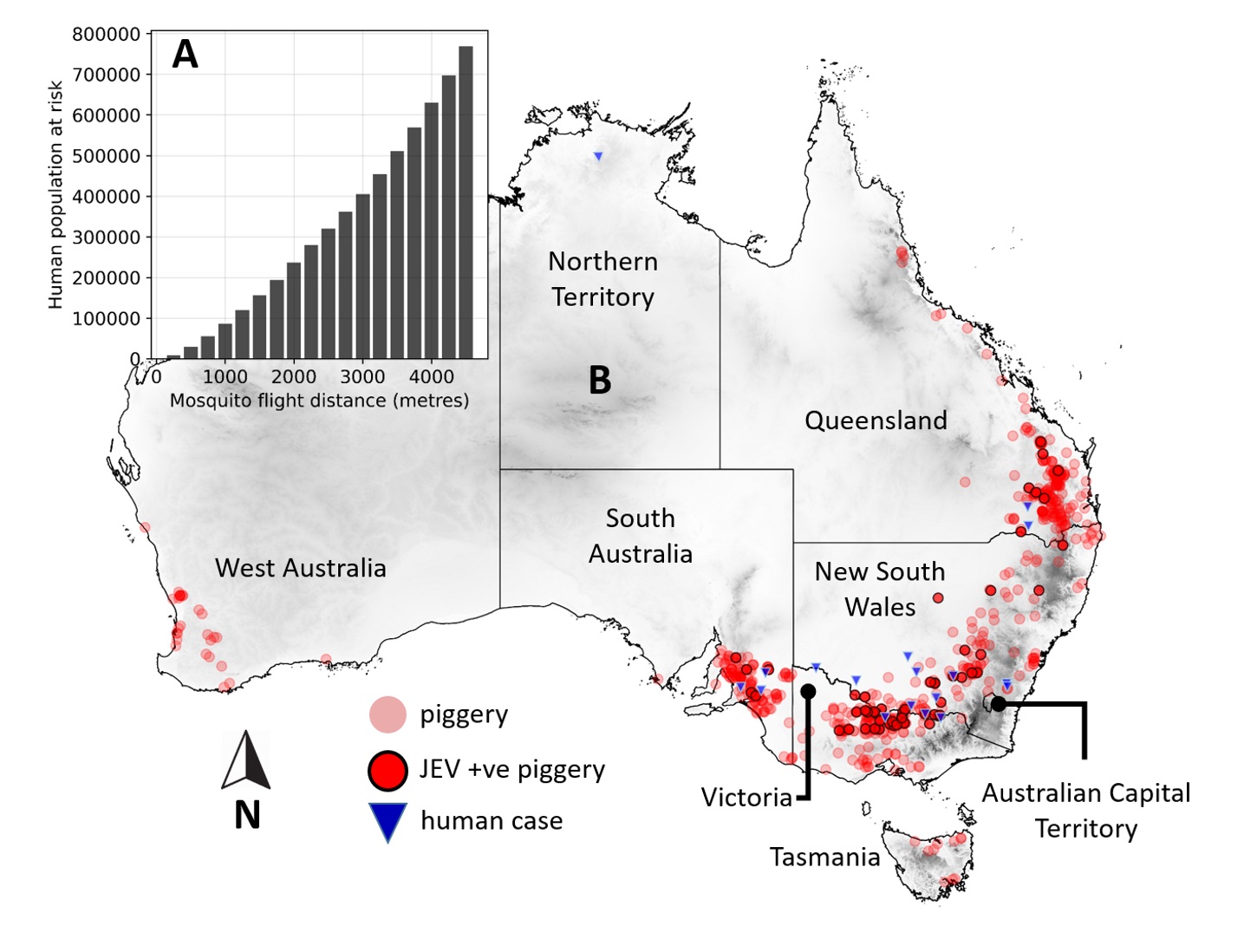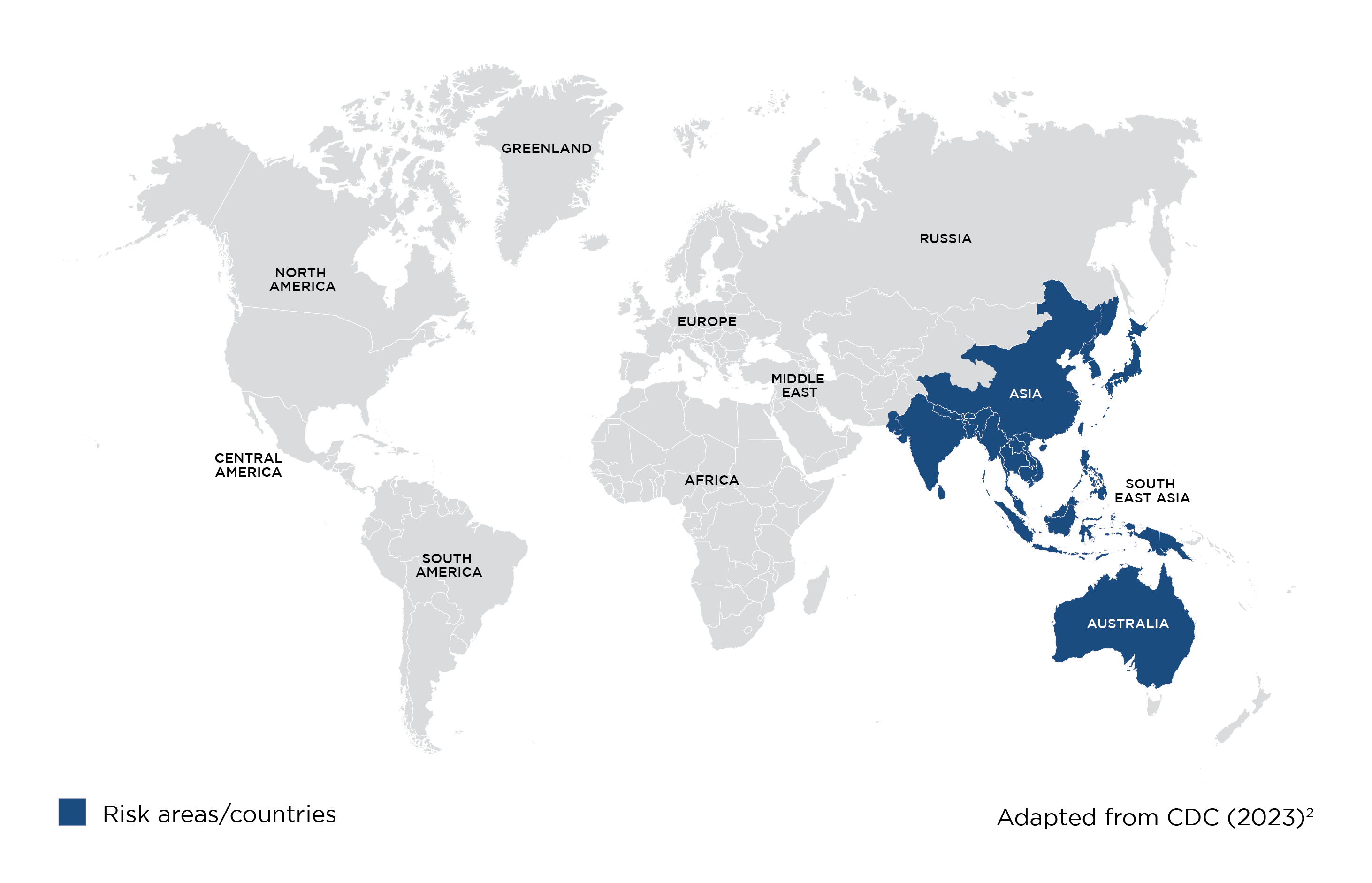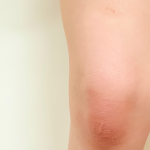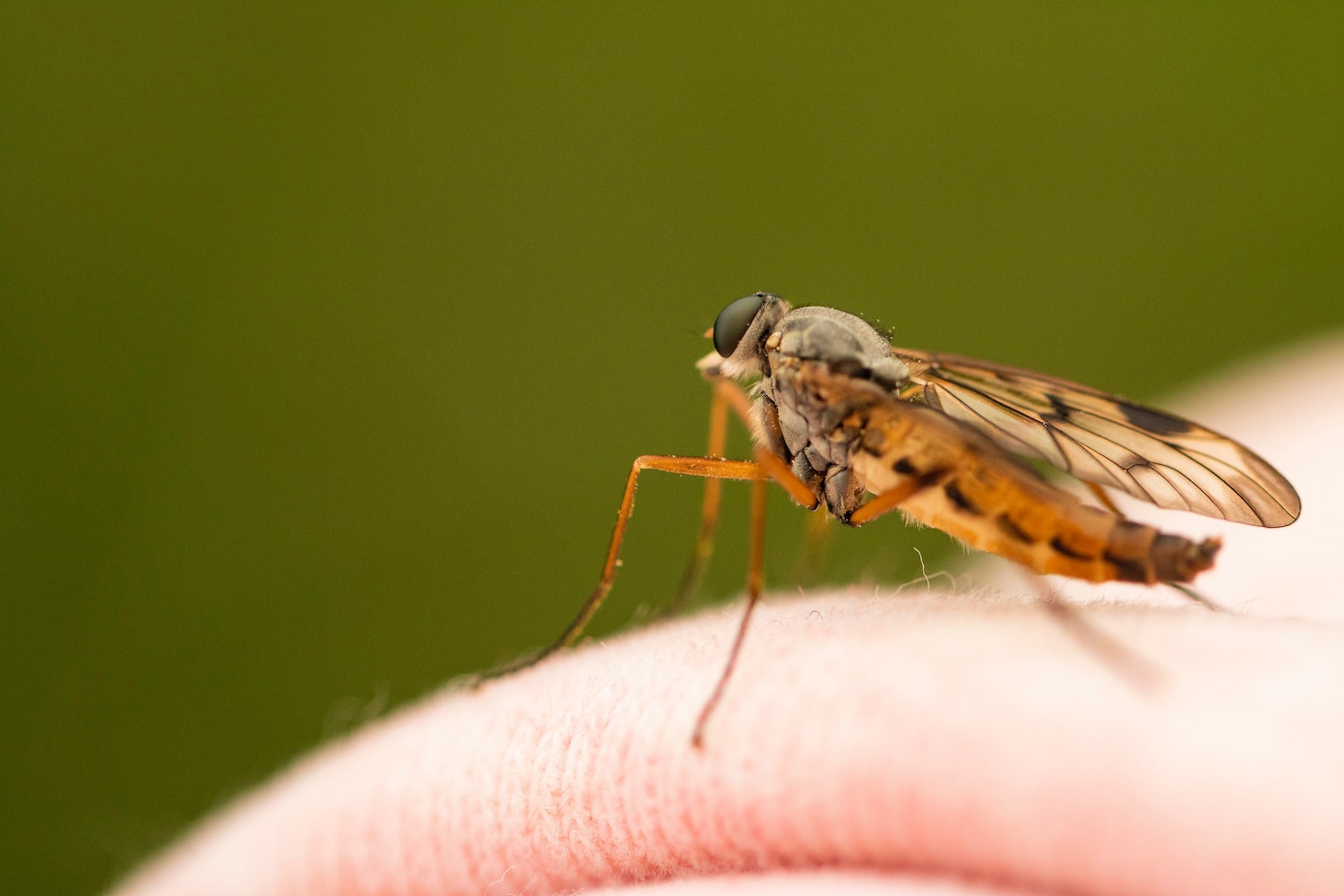
Key facts
- Japanese encephalitis is a serious disease caused by the Japanese encephalitis virus (JEV).
- Humans can catch JEV if they are bitten by infected mosquitoes.
- Fewer than 4% of people who catch JEV will experience symptoms.
- For people who have symptoms, Japanese encephalitis can cause death or nervous system complications.
- You can reduce your risk of Japanese encephalitis by avoiding mosquito bites and getting vaccinated against JEV.
What is Japanese encephalitis?
Japanese encephalitis is an infection that can affect the central nervous system and cause serious complications and even death.
It is endemic (regularly found) in parts of Asia and the Torres Strait region of Australia.
Before 2021, only five cases of Japanese encephalitis had been seen in mainland Australia.
However, between January 2021 and February 2023, 45 people on mainland Australia were diagnosed with Japanese encephalitis. During this outbreak, 7 people died.
An emergency response to this outbreak involved:
- vaccination of at-risk people
- raising public awareness of Japanese encephalitis
As of June 2023, the emergence response to Japanese encephalitis was no longer needed at this time.
What are the symptoms of Japanese encephalitis?
Most people with Japanese encephalitis don’t experience any symptoms.
Less than 4 in 100 people with Japanese encephalitis will have any symptoms.
You may notice symptoms about 5 to 15 days after being bitten by a JEV-infected mosquito.
The Japanese encephalitis virus can cause encephalitis and meningitis.
These conditions are serious, and can cause symptoms such as:
- fever
- headache
- neck stiffness
- vomiting
- convulsions and seizures (fits)
- muscle weakness and paralysis
- fatigue and coma
What causes Japanese encephalitis?
Japanese encephalitis is caused by the Japanese encephalitis virus (JEV).
JEV only spreads to humans via bites from infected mosquitoes.
Animals such as pigs, waterbirds and horses can also catch JEV. These animals can’t transfer the virus to humans. If you work closely with these animals — especially pigs — you’re at increased risk of being bitten by an infected mosquito.
You also cannot catch JEV:
- through contact with infected people
- by eating meat from an infected animal
When should I see my doctor?
If you have recently been in an area with reports of JEV, and you experience sudden symptoms, seek medical attention.
How is Japanese encephalitis diagnosed?
Your doctor can diagnose Japanese encephalitis by asking you about your symptoms. They may also ask if you have recently travelled to any areas where there are cases of JEV.
If your doctor thinks you have Japanese encephalitis, further tests can confirm your diagnosis. These may include a:
- blood test
- lumbar puncture (spinal tap)
How is Japanese encephalitis treated?
There is no specific medicine or treatment for Japanese encephalitis.
If you have symptoms of Japanese encephalitis, you will likely need treatment in hospital to manage:
- seizures
- encephalitis
- meningitis
Antibiotics will not help you recover because this illness is caused by a virus, not bacteria.
Can Japanese encephalitis be prevented?
The 2 best ways to prevent Japanese encephalitis are to:
- avoid being bitten by mosquitoes, especially in areas where JEV is common
- get vaccinated against JEV
What are the recommendations for the JEV vaccination?
Vaccination is a safe and effective way to reduce your chance of catching JEV.
Vaccination is recommended for people who:
- spend a month or more in Asia or the Torres Strait region of Australia during the wet season
- work in laboratories with JEV
- work with mosquitoes
- work with pigs
See the table below for details about the Japanese encephalitis vaccination.
| How many types of vaccines are available? | 2 types of vaccines against JEV are currently available in Australia. |
| When to get vaccinated? | All people over 2 months of age can get a JEV vaccine. You should be vaccinated before you spend 1 month or more in Asia or the Torres Strait region of Australia in the wet season. |
| How many doses are required?
| 1 or 2 doses. The number of doses and time between doses will depend on:
|
| How is it administered? | Injection |
| Is it free? | No — there is a cost. |
| Common side effects | The vaccine is very safe. Side effects are mild and temporary. They may include:
|
You can talk to your doctor about which vaccine is best for you or your child.
If you’re not sure whether you should get vaccinated, you can ask your:
- doctor
- travel clinic
How can mosquito bites be avoided?
To protect yourself from mosquito bites, you can try these things:
- Reduce skin exposure and avoid tight clothes. Instead, wear loose-fitting clothes such as long-sleeved shirts, long pants, long socks and enclosed footwear.
- Avoid spending time outside at dawn or dusk, as this is when mosquitoes are most active.
- Use insect repellent. Choose products that contain diethyltoluamide (DEET), picaridin or lemon eucalyptus oil — these are most effective against mosquitoes.
- Stay in rooms that have flyscreens over the doors and windows.
- Sleep in rooms that have mosquito nets.
- Do not leave water containers open. Mosquitoes breed in stagnant water.
You can find out more about insect bites here.
How is the spread of Japanese encephalitis prevented?
Japanese encephalitis is a nationally notifiable disease in Australia. This means, if you are diagnosed with Japanese encephalitis, your doctor will let your local public health authority know. They will check who you have been in contact with and take steps to control an outbreak.
Are there complications of Japanese encephalitis?
Japanese encephalitis can cause severe complications or death. Complications of Japanese encephalitis include permanent injury to your brain or nervous system.
About half of people who survive symptomatic Japanese encephalitis experience complications.
